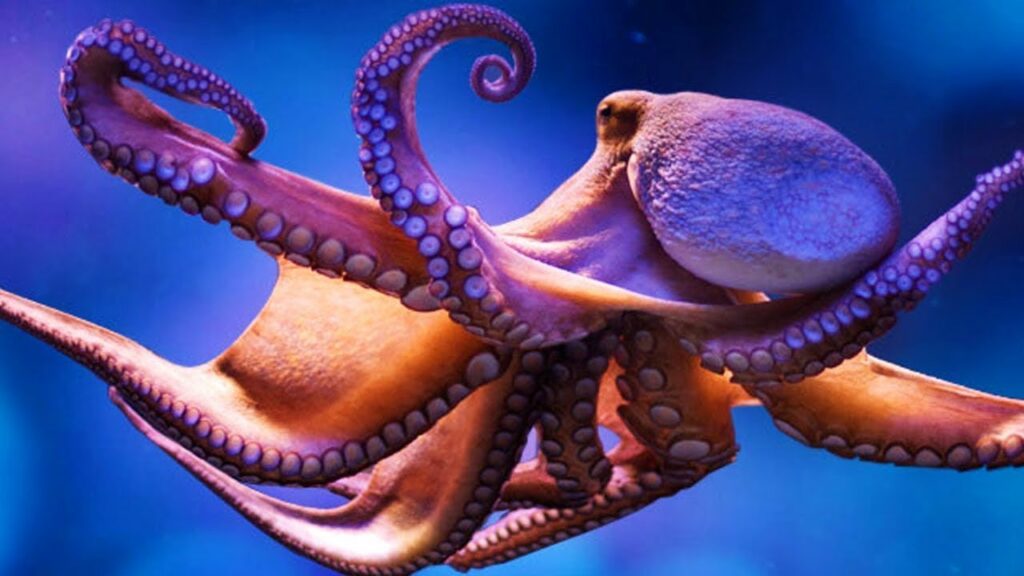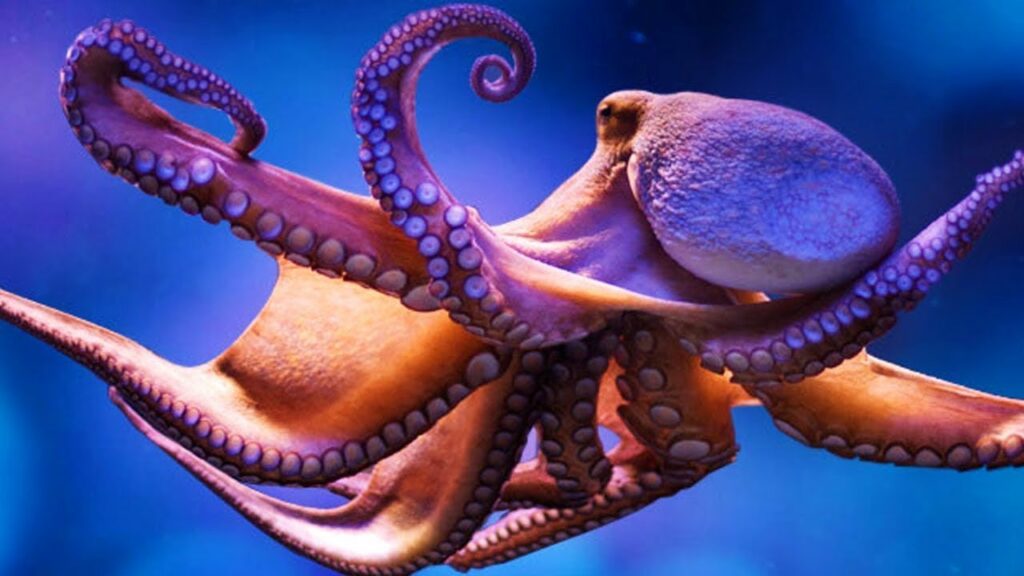
An octopus’ DNA is unlike any other. Nobody is aware of the origins of their DNA. They are known as “de novo,” which translates to “from nowhere.”
Yes, octopus DNA is very peculiar. In fact, because the octopus genome was so unlike from what we typically find in mammals, several scientists described it as extraterrestrial when it was sequenced in 2015.
Ocean mysteries
Numerous riddles about our planet’s waters might perhaps shed light on many questions about life itself. Marine biologists have made slow but steady advancements over the past few decades toward a better comprehension of nature and life.
In an effort to better understand cephalopods, a group of researchers decided to do some study and focused on these group of animals.
The molluscs’ coleoid subclass includes the octopus, squid, and cuttlefish. They have a more than 500 million year evolutionary history, which predates the arrival of plants on land. These organisms may be found in practically every ocean, at almost any depth.
They are primarily distinguished by a wide variety of amazing morphological features, including bodies that are incredibly flexible, eyes that resemble cameras, and “advanced” chameleonic responses. Invertebrates are the creatures that control the waters because they have a greater nervous system than other animals.
They are said to be the most intelligent invertebrate, with highly developed brains and complex problem-solving abilities. So, as if octopuses opening jam jars wasn’t bizarre enough before, scientists have now come to the conclusion that these aquatic critters are even more perplexing.
Weird octopus
Octopuses are among the strangest of the estimated 8.7 million species on Earth. These eight-legged geniuses have not one, but three hearts and can quickly disguise themselves. They can even unscrew themselves from tightly sealed jars. Even stranger, it is now known that octopuses have the ability to alter their genetic makeup. And after examining their DNA, some researchers are shockingly asserting that they could actually be aliens.
Researchers have discovered that octopuses (NOT Octopi) are in fact wholly distinct from any other species on our planet according to the first-ever complete genome sequence. A astonishing 33,000 protein-coding genes have been found in their genome, more than in a person, demonstrating a degree of complexity never previously seen in a living organism.
With its eight prehensile arms, huge brain, and excellent problem-solving skills, the octopus looks to be completely distinct from all other animals, including other molluscs, according to US researcher Dr. Clifton Ragsdale from the University of Chicago.
Octopus genome
The ability of the cephalopod brain to immediately modify its neural network features, which have a significant influence on memory and learning capacity, was one of the key reasons why researchers started to look into the molecular foundation of the cephalopod brain. These particular skills provide a genomic explanation that includes biological processes that enable tissues to quickly modify proteins in order to change their function.
The octopus genome is high in transposons, sometimes known as “jumping genes,” which may rearrange themselves on the genome, claim researchers from the University of Chicago. Researchers discovered increased transposon expression in brain tissues, despite the fact that their function in octopuses is unknown. Transposons are known to have the power to influence how genes are regulated and are thought to be crucial in determining how the genome is structured.
With a few notable exceptions, Caroline Albertin, co-lead author and graduate student in Organismal Biology and Anatomy at the University of Chicago, said that the octopus essentially has a typical invertebrate genome that has just been completely rearranged, as if it had been put into a blender and mixed. This was a completely unexpected finding and results in genes being put in new genomic contexts with distinct regulatory elements.
Are they aliens indeed?
A new genetic code map for octopuses has been discovered, and it is so unusual that it may really belong to a “alien” species.
The key finding of the scientific paper was that octopuses share “Alien” DNA.
The scientific world has been shaken by this assertion, which has produced a stir among marine scientists who appeared to be both astonished and interested at the same time.
No one believes the octopus to be a “alien” from another planet, hence the “joke” about it being extraterrestrial is obviously false. But the notion that the genomes of closely related animals should share a great deal of similarity defies accepted evolutionary theory.
Bottom line
The answers to many of life’s biggest riddles may have been right under our noses all along if we would only chose to pay more attention to our ocean and all that resides within it.
Due in part to their capacity to modify their DNA on the fly, these species, which now include octopuses, squid, and cuttlefish, have genetic makeups that are just as bizarre as the animals themselves.
In the end, there is still much to learn about the genome because scientists have only begun to unravel its complexity. It is still unclear which conclusion is correct, but one thing is certain: life on Earth is incredibly diverse and frequently puzzling. Nevertheless, because the technique is still cutting-edge, genome mapping initiatives can teach us a lot about the world that we don’t yet understand.
